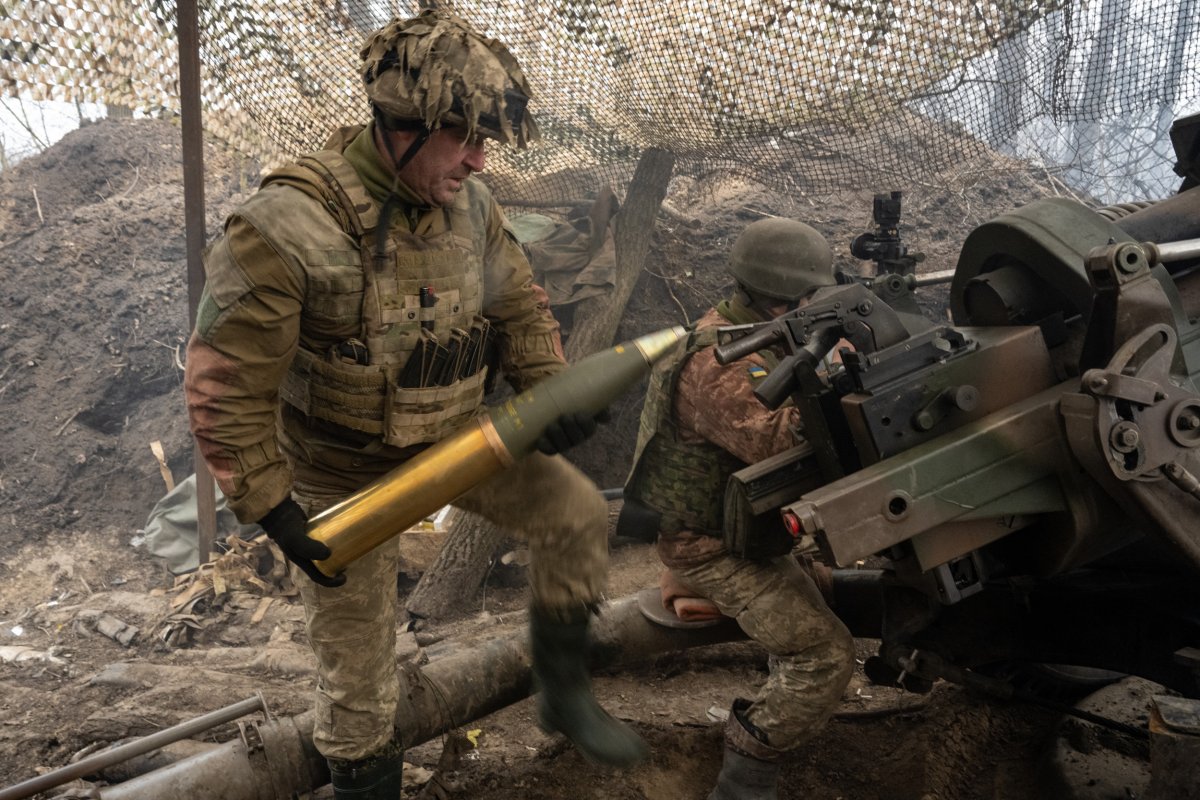The insatiable appetite of Russia's war on Ukraine is drawing in weapons and munitions from all over the world, as both sides seek an edge in a devastating attritional contest now more than two years old.
The dynamic is pitting arms from many nations against each other. Many such contests are planned and approved by suppliers. Ukraine's use of Western military technology against the Russian invasion force is the most visible example of NATO backing for Kyiv.
Moscow's use of Iranian kamikaze drones against Ukrainian cities being defended by Western anti-air systems, meanwhile, touches on the decades-long simmering conflict between Tehran and Washington, D.C.
Ukraine and Russia—whether at the state, military, or individual level—are also turning to the private market to fill gaps in their arsenals. The many degrees of separation provided by international trade networks have prompted some more surprising battlefield matchups.

Multiple photographs have emerged in recent months of Ukrainian gunners using what appear to be Indian-made artillery shells to attack Russian positions, where Moscow's troops are increasingly outfitted with Chinese weapons ranging from artillery rounds to quadrocopter drones and even golf cart-style buggies.
The Indian government—which has refused to join Western sanctions on Moscow and has been enjoying significantly discounted energy imports from Russia—in January "categorically" denied any knowledge of the supply of shells to Ukrainian forces.
Unconfirmed media reports suggested that the 155mm shells were first sold to at least two European nations—one reportedly Slovenia—by the Munitions India Limited MIL private company, before being forwarded on to Ukraine. Newsweek has contacted MIL and the Ukrainian Defense Ministry by email to request comment.
Slovenia dismissed the reports as "fake news" in a statement published last month, adding that the country had "never purchased" 155mm munitions in India, "nor had it participated in the transfer or resale of such ammunition to other countries."
"Such misleading reporting is an attempt both to damage the Republic of Slovenia and to discredit its international role, since it has become a non-permanent member of the UN Security Council."
India, historically non-aligned, has resisted being drawn into the war on Ukraine. New Delhi has long maintained close economic and military ties with Russia, partially due to a wider bid for partners in its long-simmering confrontation with northern neighbor China.
A 2023 Morning Consult poll showed that Indians now consider China the country's greatest military threat. New Delhi is increasingly wary amid Chinese pressure in disputed Himalayan border regions, Beijing's growing influence in neighboring nations like Sri Lanka, Myanmar, Bangladesh, and Pakistan, and closer Russian-Chinese ties amid the war on Ukraine.
The presence of Indian arms in Ukraine has not been confirmed. Russia's use of Chinese-produced equipment and munitions has been, though direct supply by Beijing has not been proven.
Newsweek has reached out to Indian, Russian and Chinese authorities for comment via email.
The U.S. confirmed in March 2023 that Chinese artillery rounds had been found in use on Ukrainian battlefields. Ukrainian forces have also reported coming across Chinese-made munitions, though it is unclear where the rounds originated and when they were supplied. Moscow is believed to be receiving direct munitions deliveries from North Korea and Iran.
China has repeatedly denied supporting Russia's aggression with direct aid, framing itself as a neutral power and potential arbiter in any future peace talks. But Beijing's deepening economic, political, and military ties with Moscow suggest a de facto backing for the war on Ukraine.
Uncommon Knowledge
Newsweek is committed to challenging conventional wisdom and finding connections in the search for common ground.
Newsweek is committed to challenging conventional wisdom and finding connections in the search for common ground.
About the writer
David Brennan is Newsweek's Diplomatic Correspondent covering world politics and conflicts from London with a focus on NATO, the European ... Read more
To read how Newsweek uses AI as a newsroom tool, Click here.








